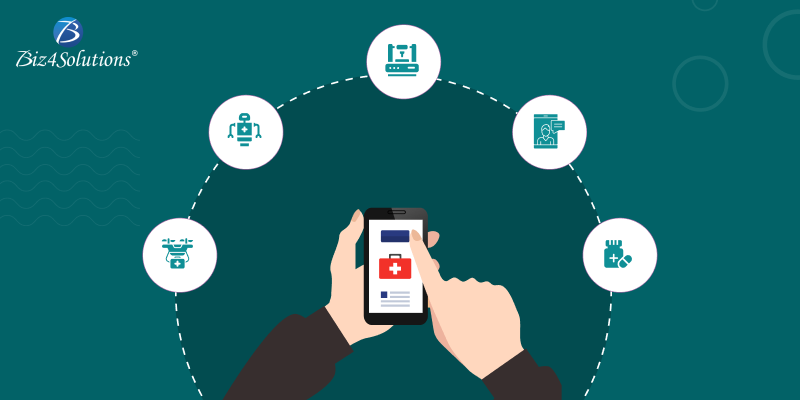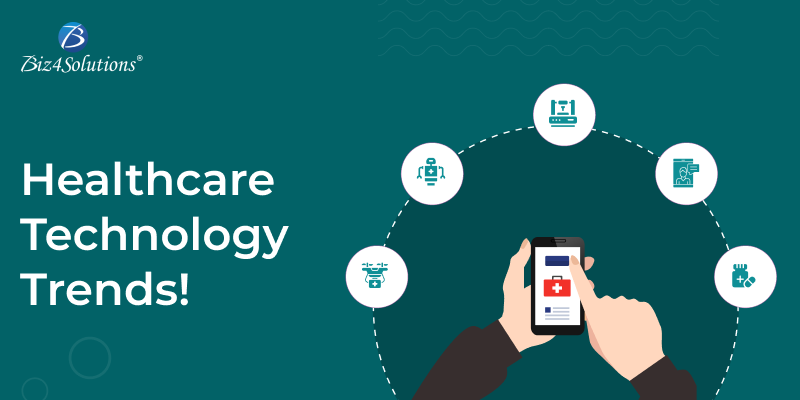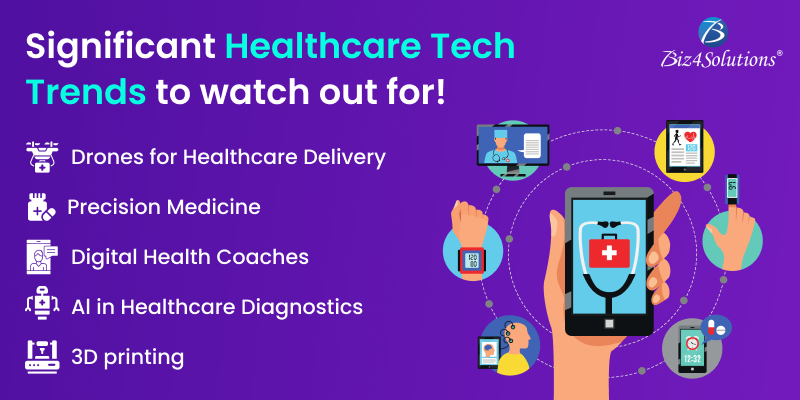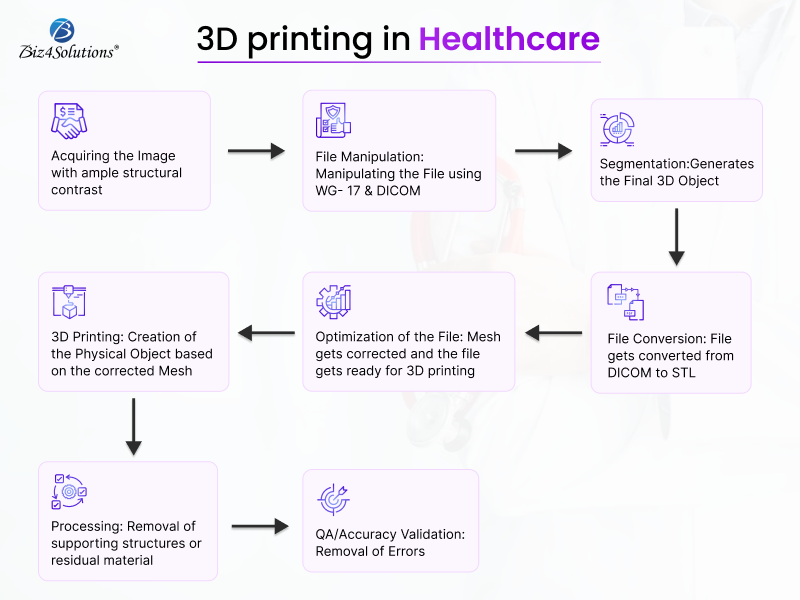12 Types of Trending Healthcare Software
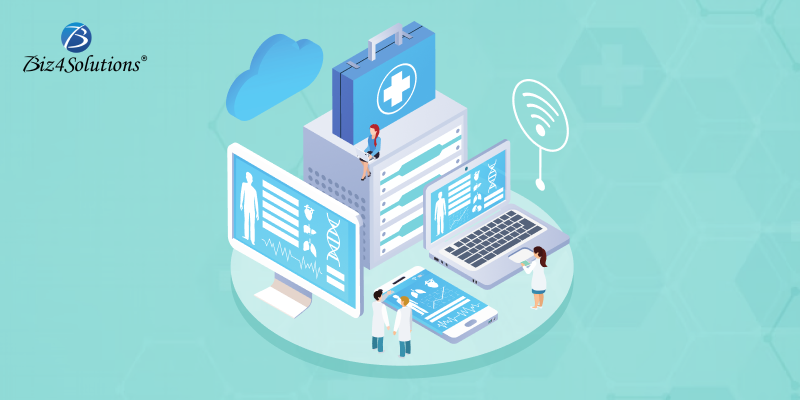
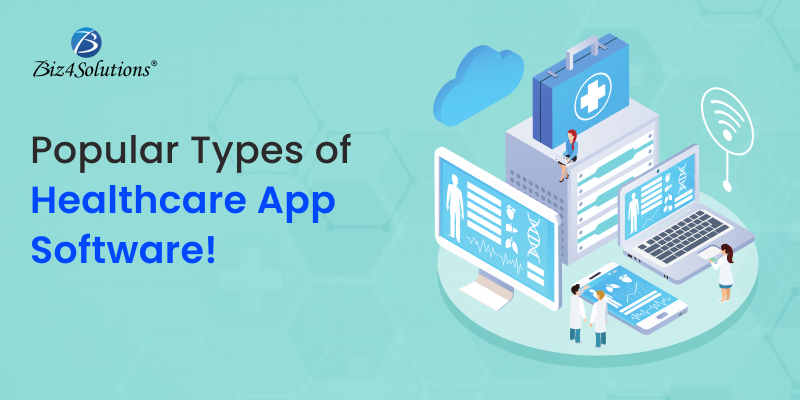
Advancement in technology has opened the door to digital transformation in healthcare. The stakeholders are adopting new technologies to develop scalable, accessible, affordable, and sustainable healthcare solutions. The healthcare industry generates a humungous amount of data from different components including patients, hospitals, trauma care, and labs. Health applications are being introduced to unify and streamline this complex data using technology and the internet. Many medical applications have been developed to connect individuals at different locations with different skill sets and functions. The aim is to solve the problems of medical care with standard software engineering solutions.
Many healthcare apps have been launched in different healthcare domains such as health diagnostics and healthcare informatics. These apps have different designs, functions, and implementations. Here is a list of 12 types of popular healthcare industry applications benefitting the healthcare sector in multiple ways.
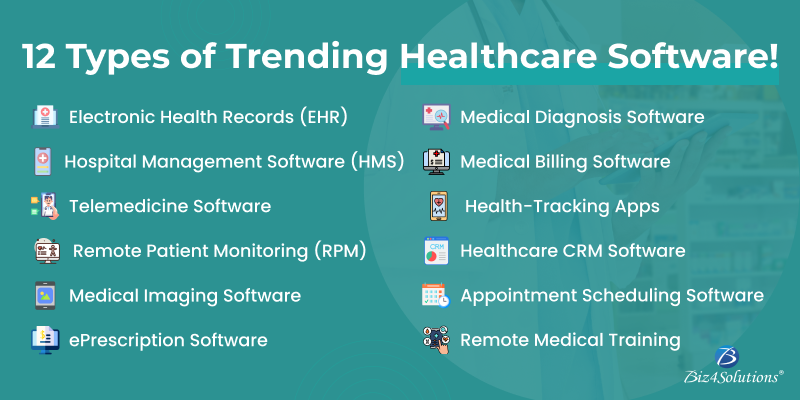
1. Electronic Health Records (EHR)
EHR is one of the emerging technologies in healthcare software applications wherein the healthcare provider and patients can benefit from the ability to electronically exchange and save health information. Healthcare organizations are adopting such technology to provide quality and safe medical care. The quick and up-to-date health-related information enables the healthcare provider to provide efficient and coordinated care. EHR apps bring in reliable, accurate, and streamlined care and billing. These technologies offer high security and privacy to patient data. Besides improved productivity, EHR offers higher efficiency to meet the business goals of any organization. The EHR can be further classified into two popular types – Electronic Patient Record (EPR) Software and Electronic Medical Record (EMR) Software. The former is used to store patient information and the latter is used to record different data such as medical types, medicine dosages, patient procedures, and recovery courses of patients.
2. Hospital Management Software (HMS)
HMS introduces management and information capabilities to help hospitals streamline their processes. HMS often has two separate portals for hospital management and patients. The former acts as a database for all information required for the administration and management of the hospital. The patient portal offers a digital page for registration, billing, insurance, and every other aspect concerning the patients. HMS solutions are known to offer numerous benefits including reduced paperwork, reduced cost, improved user experience, higher data security, streamlined communication, error-free administration, and location-free access to MIS reports. Such healthcare applications promote digital health which proves to be very beneficial in crisis-like situations such as the COVID-19 pandemic where we stressed to implementation of paperless and remote communication.
3. Telemedicine Software
The Telemedicine industry is booming at a fast pace. Statistics suggest that by the end of the year 2025, the industry will value at about $64 Billion. The COVID-19 pandemic has immensely contributed to this growth. Telemedicine is one of the profitable healthcare IT apps that enable patients to communicate with doctors and healthcare providers from remote locations. The patients can get appointments with the healthcare providers and communicate with them using chat messaging, emails, video calls, and telephone calls. It is one of the many profitable healthcare app solutions that facilitate people (elderly people, people with disabilities, and people living in isolated areas) with the potential to connect with healthcare providers from the comfort of their homes. Many healthcare companies are readily hiring healthcare app developers to develop productive solutions and capture consumers from the remote corners of the country.
4. Remote Patient Monitoring (RPM)
Healthcare providers have come up with healthcare solutions to monitor and collect patient data from remote locations. RPM solutions enable healthcare providers to collect health data, conduct diagnoses and alert the doctor in case of any abnormal behavior. Healthcare providers hire healthcare app Development Company to develop RPMs with unique features that satiates their requirements and business model. Different features of RPM include data analytics, reporting, online doctor-patient communication, and patient data security. These apps also come with text-to-speech functionalities to be used by people with disabilities. Taking a step further, healthcare providers are leveraging the potential of IoT to integrate RPM with different health-tracking wearable devices to keep a check on device failures.
5. Medical Imaging Software
Medical imaging software is gaining traction over its potential to analyze large datasets derived from images. Many radiologists use Machine Learning diagnostic tools with it to process a large volume of data and highlight the details that demand immediate attention from the doctor. These software solutions are also used to develop a customized 3D image of a human body or some specific body part. Such software facilitates the designing of equipment and body components such as coronary stents and prosthetic limbs.
6. ePrescription Software
These are one of the most commonly used healthcare apps. ePrescription software keeps a track of old prescriptions and assists healthcare providers in refilling and generating new prescriptions. This kind of software has become a must-have for doctors, enabling them to track patient history and save time. The ability to send the prescription to the pharmacy in just one click makes these apps very handy and time-efficient. They also notify drug allergies, keep a check on prescription drug errors, monitor the use of the controlled substance, promote paperless culture, and save time on medicine procurement.
7. Medical Diagnosis Software
Of all the medical software solutions and apps used in hospitals, healthcare diagnosis apps offer vast benefits to healthcare providers by offering a holistic view of the patient’s condition. Medical diagnosis healthcare software solutions have an automatic data-sharing feature that connects specialists from different departments and brings them to one platform. Healthcare professionals are integrating Artificial Intelligence in such healthcare software applications to process all the available patient information and provide a probable and potential diagnosis. At the same time, patients can use these apps to find out the severity of their medical condition and the need for medical consultation.
8. Medical Billing Software
Medical billing apps have emerged as one of the key healthcare software development solutions for financial operations. These apps help users manage receipts, invoices, and insurance. Many healthcare institutions integrate these apps with larger systems such as EHR. Many hospitals include this software in their healthcare services. The key features include automated accounting, financial management, claims management, and patient registration. In any integrated health system, such healthcare software gets uninterrupted access to a centralized patient database, that helps in medical coding and billing. Compliance strength is another important feature that boosts any medical billing service by automatically staying updated with the latest billing laws. Healthcare organizations are widening the horizons of their health services by integrating Business Intelligence into medical billing systems to gain business insights regarding revenue generation.
9. Health-Tracking Apps
Most of us must be aware of health-tracking apps that help us track our diet, overall well-being, and fitness. Wearable devices have only escalated the popularity of such medical apps. The mobile health apps industry has flourished over the last many years. The users get accurate health data such as Heart Rate and Oxygen level, enabling them to monitor their lifestyle and daily activities. Besides the trending usage, these apps have proved to be beneficial for patients in recovering from medical ailments. These apps can highlight changes in body parameters and alert the medical staff in case of any abnormal behavior. These health-tracking apps are promoting a healthy lifestyle to the common public.
10. Healthcare CRM Software
Healthcare Customer Relationship Management (CRM) software boosts the doctor-patient relationship by automating and streamlining different services. Medical institutions are using such healthcare app development solutions for patient acquisition and retention. Healthcare CRM software has multiple features including lead management, a patient portal, an appointment scheduler, analytics and reporting, and marketing automation. All these features can help any healthcare institution offer personalized services and achieve its business goals.
11. Appointment Scheduling Software
Health centers and physicians are increasingly adopting appointment scheduling software to streamline and speed up appointment scheduling. Appointment scheduling, sending reminders, rescheduling, and many other activities can be performed using this appointment-scheduling software. Such apps generate a clear picture of the doctor’s schedule. Also, such apps can automate the monotonous and manual work of receptionists and other workers. It comes with a patient-facing panel to be used by patients and a management panel to be used by the medical institution.
12. Remote Medical Training
It is one of the medical software applications that largely benefit the medical fraternity in training and education. Advanced technologies such as Augmented Reality are being integrated into such apps to boost the learning process. Surgery is one of the most beneficial areas. Such healthcare IT solutions are helping healthcare professionals to keep up with continuous medical education and the latest developments in healthcare. These apps are known to be cost-effective tools that cut down the cost of traveling and hiring resources for medical training. Remote medical training software is being used to train medical professionals at a large scale and at a fast pace.
Are You Interested in Building a Top-Class Website or Mobile App?
Conclusion
Intelligent healthcare software solutions are simplifying and streamlining the healthcare system with advanced technologies like the Internet of Things (IoT) and Machine Learning (ML). These healthcare apps are positively influencing every aspect from appointment scheduling to patient recovery. Special attention has been given to improving communication between different stakeholders, healthcare providers, and patients. These healthcare IT solutions are reducing the workload of hospitals and other healthcare institutions. They have proven to be cost-effective, time-efficient, intelligent, resource-optimized, and sustainable, ready to cater to a large population.
Healthcare industry software applications have been trending and opening doors to new opportunities for revenue for healthcare institutions. Stepping into healthcare app development can prove to be a great move, given every component from market research to user testing is taken care of. For developing a profitable and HIPAA-compliant medical solution, it’s advisable to partner with a proficient software development company with domain-specific experience. An experienced firm can help you develop scalable and sustainable medical software that takes you closer to your business goals with every step.

